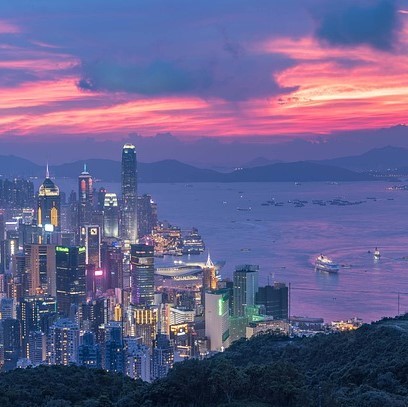The blocking of websites by the country's service providers represents an unfortunate milestone.

Hong Kong telcos have reached a milestone – for the first time they are blocking a website on security grounds.
The order to limit access to a local website that documents police abuses was made under the contentious National Security Law (NSL), introduced on July 1.
HKBN, the biggest home broadband provider, today became the first to confirm it had blocked access to the HK Chronicles website at police instruction.
Police will not confirm whether they have invoked the security law against the website or give reasons why.
The blocking of HK Chronicles became known last week when editor Naomi Chan advised last week that it had become inaccessible to many visitors.
She said that based on users' reports it appeared access was being restricted by mobile operators SmarTone and China Mobile HK, fixed-line providers PCCW/HKT and HKBN, and possibly others.
"Owing to the current evidence and signs, we believe that Hong Kong ISPs [have] attempted to block our website and prevent citizens from accessing our content, which could involve government's request or cooperation," she said.
The site is still accessible to Hong Kong users via a VPN.
Want to know more about 5G? Check out our dedicated 5G content channel here on Light Reading.
HK Chronicles emerged during Hong Kong mass protests in 2019 to document alleged abuses by police officers.
Its publication of personal details and photos of police and government figures has led to accusations of doxing – although supporters point out it is not the only site to do so, including those who dox protestors and democrat politicians.
The legal authority to block the site was made under the sweeping Article 43 of the NSL, which among other things gives police powers to carry out online surveillance, to order takedowns or to demand that ISPs "provide assistance" to remove or block content.
Wong Ho-wa, a member of the election committee for the IT sector, criticized the police for failing to explain the reasons for cutting off the site and how it was related to national security.
"The red line can move at any time. It is a kind of white terror for people in the communication sector or doing websites," he told Apple Daily.
The broad reach of the security law also poses problems to social media companies.
Facebook, Twitter and Google have already said they will not comply with Hong Kong data requests under the new law.
It seems only a matter of time before they are directed to take down content under the NSL.
The law applies no matter where the material is posted from, which means future visitors to Hong Kong could be arrested at the border for a social media posted deemed to be subversive, seditious or advocating independence or collusion with a foreign power.
Once known for its freewheeling press and rule of law, Hong Kong's liberties have been steadily whittled away since the communist party took control in 1997.
It has plunged from 18th place in the RSF World Press Freedom Index in 2002 to 80th place in 2020. The People's Republic of China ranks 177th out of 180.
— Robert Clark, contributing editor, special to Light Reading
Read more about:
AsiaAbout the Author(s)
You May Also Like










